News
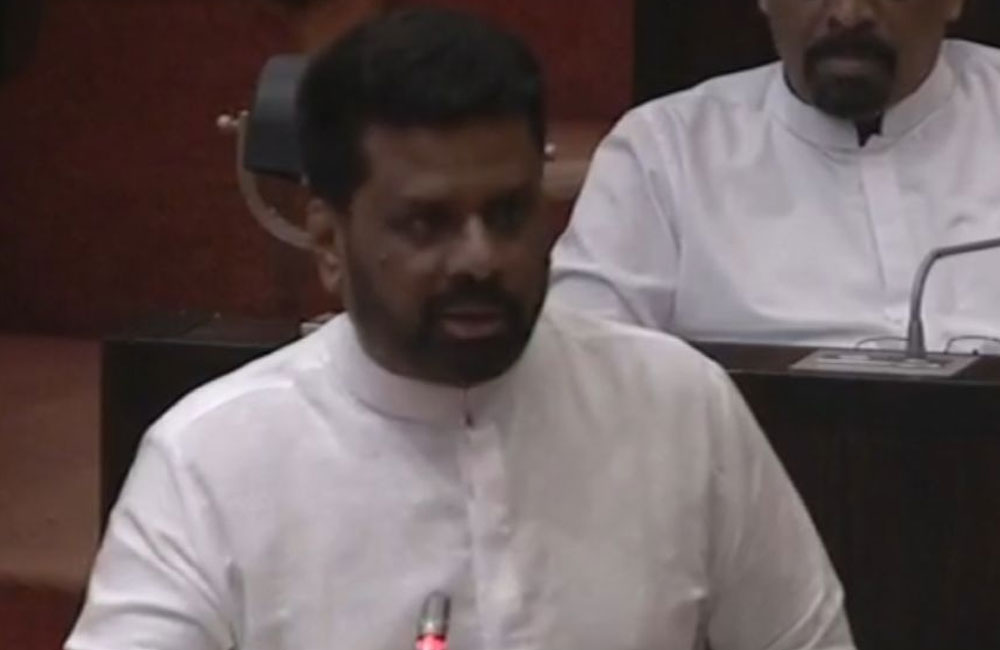
Vehicle Market Will Stay Open, No Tax Hikes Ahead : President
Sri Lanka President Anura Kumara Dissanayake has reaffirmed the government’s commitment to maintaining an open vehicle market, assuring that no new taxes will be imposed on vehicle imports.
Speaking on the reopening of Sri Lanka’s vehicle import market after a five-year hiatus, the President revealed that Letters of Credit (LCs) worth USD 1,267 million have already been opened for vehicle imports.
He projected that this figure could rise to USD 1,500–1,800 million by the end of the year, reflecting pent-up demand and renewed consumer confidence.
“There were doubts about whether vehicles could be brought in. But look at what’s happening now,” he said. “This is not a burden on the 2022 or 2023 economy. We’ve absorbed it, and we’re managing it.”
President Dissanayake emphasized that Sri Lanka’s aging vehicle fleet—many over 15 to 20 years old—requires renewal, and that the auto sector itself is a vital contributor to the economy. He warned against misinformation and alleged conspiracies aimed at disrupting the market, including false claims about impending restrictions or tax hikes.
“There’s a narrative being created to scare people into rushing purchases and destabilizing the dollar,” he said. “Let me be clear: we will not restrict vehicle imports, and we will not increase taxes on vehicles.”
The President urged citizens to remain calm and assured that the government is focused on sustainable economic recovery, not short-term panic. “If you can’t buy a vehicle this year, you can next year. The market will remain open.”
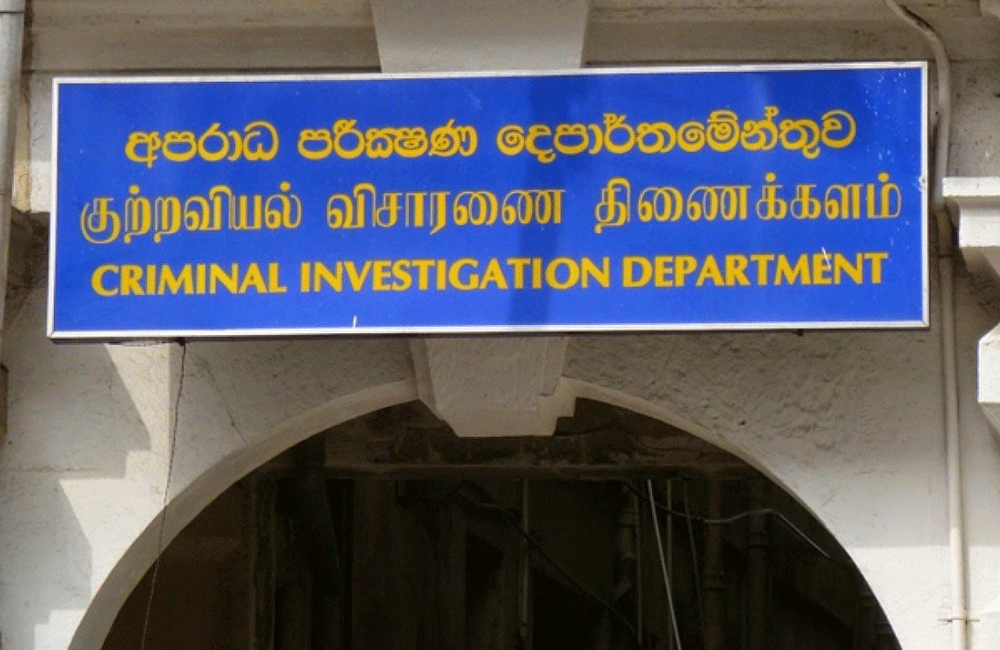
Ranil's Private Secretary Quizzed for Over Six Hours by CID
Sandra Perera, the private secretary to former Sri Lanka President Ranil Wickremesinghe provided a statement to the Criminal Investigation Department (CID) today (4) after that lasted more than six hours.
The prolonged questioning session is part of an ongoing investigation.
The Criminal Investigation Department (CID) summoned Sandra Perera, a personal secretary to ex-President Ranil Wickremesinghe, to provide a statement regarding an investigation into a foreign trip allegedly funded through the Presidential Secretariat’s financial allocations.
Perera arrived at the CID headquarters around 9:00 a.m. today (4), where officers began recording her statement in connection with the inquiry.
The investigation focuses on a foreign visit conducted between September 13 and 24, 2023, which is suspected to have involved the use Presidential Secretariat’s financial allocations.
In a related development, Saman Ekanayake, the former Secretary to the President, has also been summoned to appear before the CID tomorrow morning (5) to provide a statement regarding the same matter.
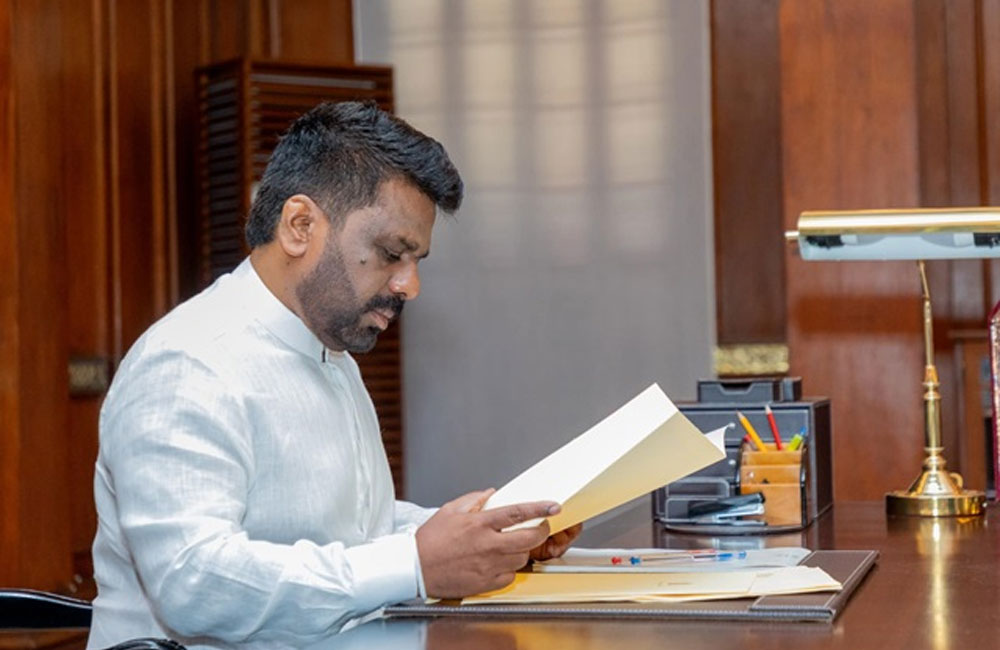
President approves letter removing Deshabandu Tennakoon from IGP post
President Anura Kumara Dissanayake has approved the letter removing Deshabandu Tennakoon from the post of Inspector General of Police (IGP).
The letter was submitted by Speaker Jagath Wickramaratne per the resolution passed in Parliament yesterday on Deshabandu Tennakoon’s removal from Office.
Following the President’s nomination of a candidate to the Constitutional Council for the position of IGP, a new Inspector General will be appointed based on majority approval.
In the vote held in Parliament yesterday on the proposal to remove Deshabandu Tennakoon from office, 177 votes were cast in favour of the resolution, with none against. One Member of Parliament abstained from voting.
On 22nd July, it was revealed in Parliament that Deshabandu Tennakoon was found guilty of the allegations against him.
This was announced by Speaker Jagath Wickramaratne when presenting the report of the Parliamentary committee that investigated Tennakoon.
Accordingly, the committee unanimously recommended that Deshabandu Tennakoon be removed from his position. He faced allegations of abuse of power and misconduct in office.
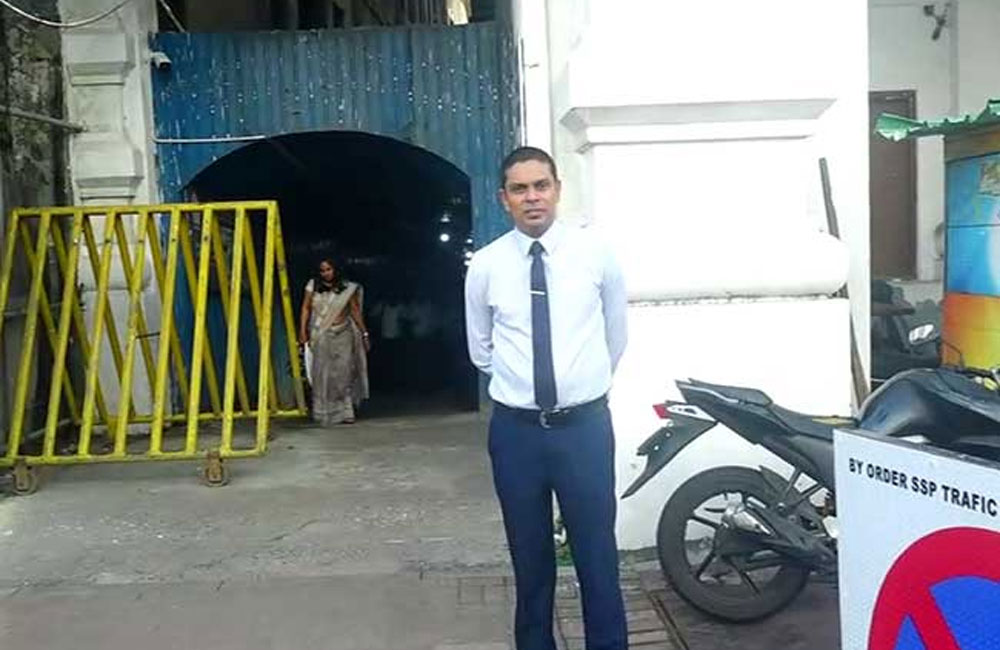
MP Ramanathan Archchuna leaves CID after recording a statement
Jaffna District MP Archchuna Ramanathan reported to the Criminal Investigations Department (CID) today.
Speaking to the media before entering the CID premises, MP Archchuna said he had been summoned to record a statement today.
Upon further inquiries, he revealed the statement was to be recorded regarding a post on Facebook.
Jaffna District Member of Parliament Ramanathan Archchuna has left the Criminal Investigation Department (CID) after recording a statement.
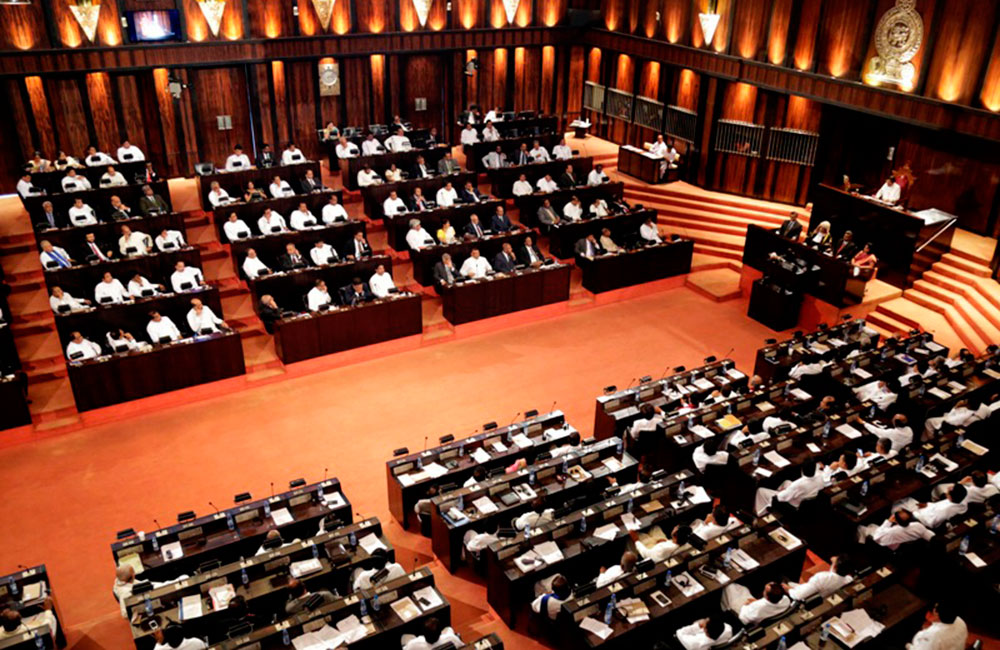
Sri Lanka Electricity Amendment Bill passed in Parliament
The Sri Lanka Electricity (Amendment) Bill was passed in Parliament with a majority of 96 votes today.
The aforementioned Bill was passed in Parliament with amendments.
The second reading debate of the Bill was held from 11.30 am to 5.00 pm today, after which a vote was taken and the Bill received 121 votes in favour and 25 votes against.
Subsequently, during the Committee Stage, several amendments were incorporated into the Bill. However, no vote was taken for the third reading.
Accordingly, the second reading of the Sri Lanka Electricity (Amendment) Bill was passed in Parliament with a majority of 96 votes.
The Bill proposes to revise and refine the electricity sector reforms introduced in 2024, aims to balance privatization with public ownership, especially in generation and distribution, and seeks to enhance transparency, efficiency, and alignment with national energy policies.
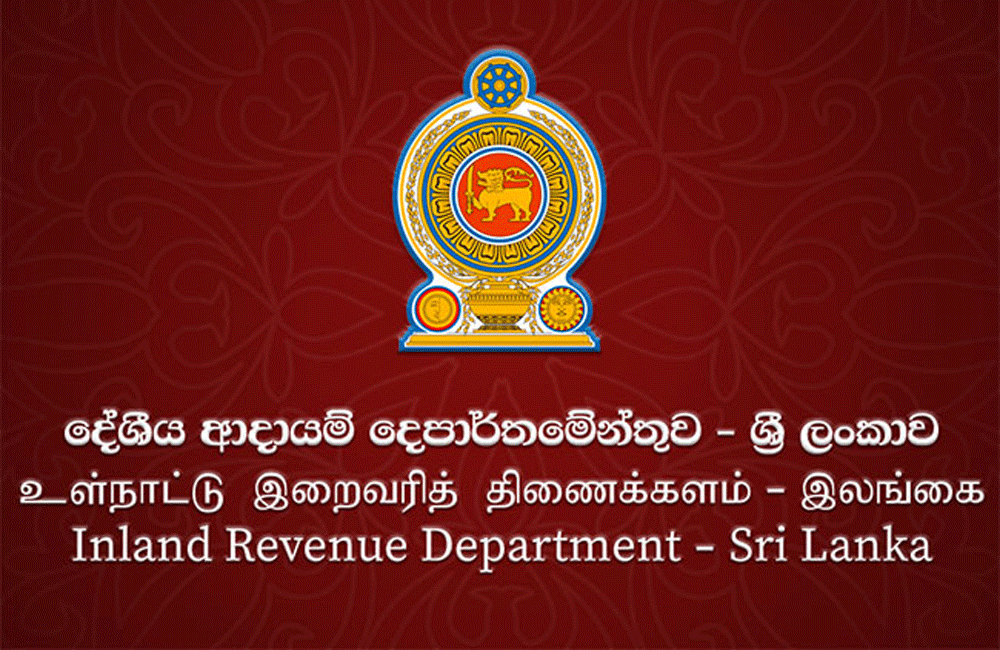
Pin Validity For Taxpayers Extended Until November 30
The validity of the Personal Identification Number (PIN) issued to taxpayers has been extended until November 30.
The Inland Revenue Department has confirmed that the PIN is valid for all categories of taxpayers, including sole proprietors, partnerships, and corporate entities.
Accordingly, filing tax returns online for the 2024/2025 assessment year is mandatory.
The PIN is the unique number issued to taxpayers to access their accounts within the Inland Revenue Department’s Revenue Administration Management Information System (RAMIS).
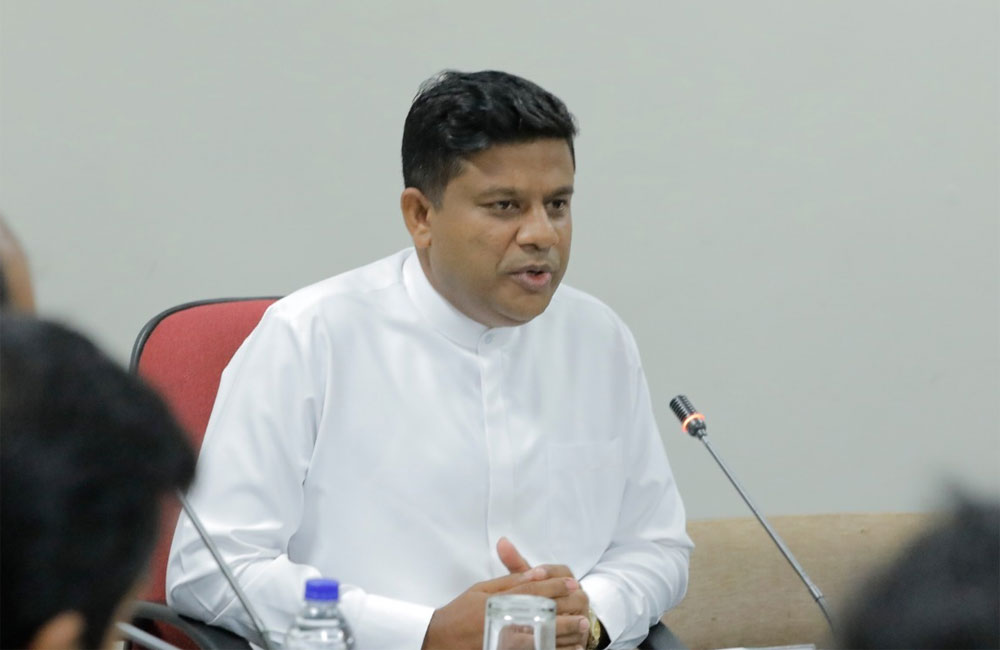
Aravinda Senarath steps down as COPA Chairman
National People’s Power (NPP) Member of Parliament Aravinda Senarath has announced that he is stepping down as the Chairman of the Committee on Public Accounts (COPA).
He made this announcement during today’s Parliamentary proceedings.
Speaking in Parliament, MP Senarath said he decided to step down as COPA Chair after a decision was taken to grant the post to a member of the opposition.
Accordingly, he stated that he will continue to function as a member of the committee and discharge his duties.
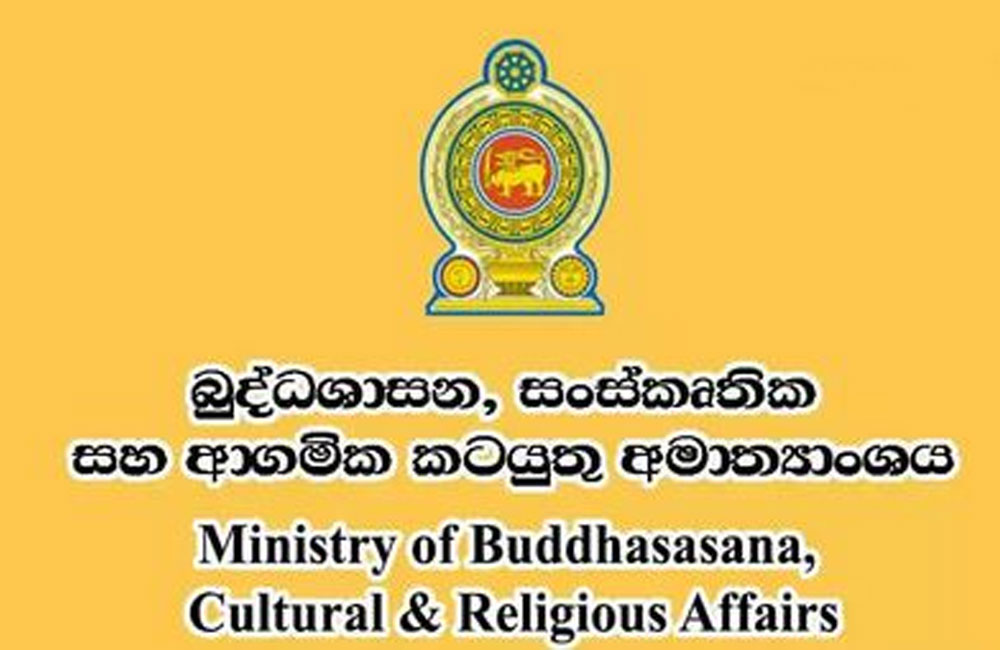
Acting Commissioner General of Buddhist Affairs appointed
Kasun Wellahewa, who served as the Additional Commissioner of the Department of Buddhist Affairs, has been appointed as the Acting Commissioner General of Buddhist Affairs with immediate effect.
According to the Ministry of Buddhasasana, Religious and Cultural Affairs, the appointment follows the removal of Commissioner General of Buddhist Affairs, Premasiri Rathnayake from the position.
The Cabinet has decided to remove Premasiri Rathnayake from his position as Commissioner General of Buddhist Affairs due to allegations that he failed to properly fulfill his duties.
The Ministry of Buddhasasana and Religious Affairs had accused the Commissioner General of not effectively carrying out the responsibilities of the Department of Buddhist Affairs.
Accordingly, the ministry stated that the relevant charge sheet was submitted to the previous Cabinet, and the Cabinet therefore decided to remove him from his position.
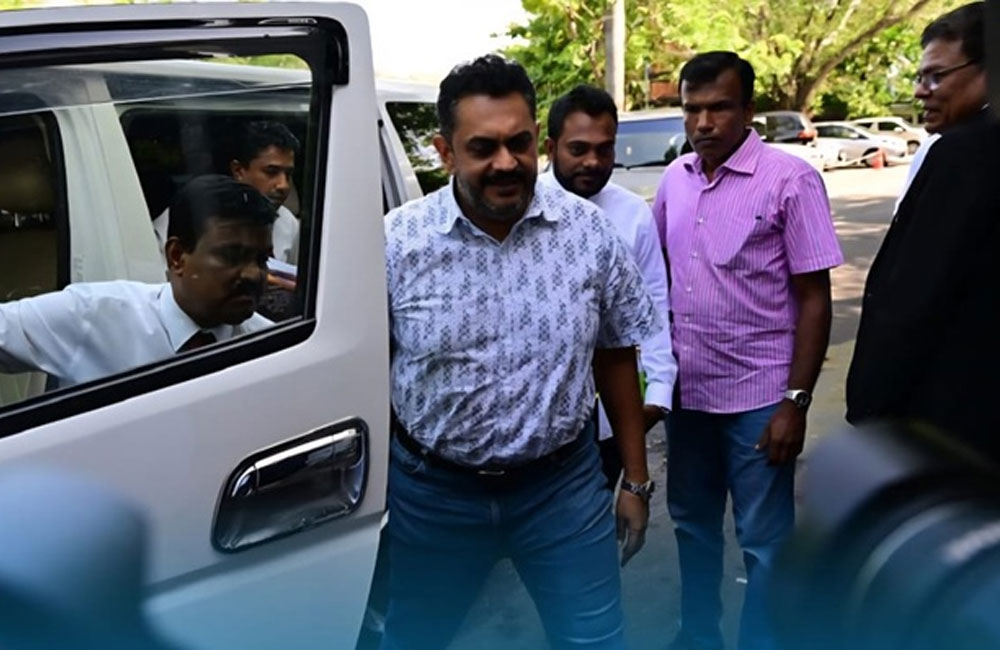
Shasheendra Rajapaksa remanded
Former State Minister Shasheendra Rajapaksa, who was arrested in connection with corruption allegations, has been remanded until 19th August.
The Colombo Magistrate’s Court remanded Shasheendra Rajapaksa after he was arrested by the Bribery Commission earlier today.
According to the Bribery Commission, the former State Minister was arrested in connection with a probe into corruption and the misuse of a property belonging to the Sri Lanka Mahaweli Authority.
In a statement, the Bribery Commission said Shasheendra Rajapaksa is accused of illegally constructing a farm building on land belonging to the Sri Lanka Mahaweli Authority, located near the Kiriibbanwewa reservoir in Sevanagala.
Following the destruction of this building during the ‘Aragalaya’ public protests on 09 May 2022, it was later confirmed that the land belonged to the Sri Lanka Mahaweli Authority.
Despite this, Rajapaksa is alleged to have pressured relevant officials, misusing his authority, to secure approval for the reconstruction of the building.
The Bribery Commission says these actions constitute charges of corruption, conspiracy, and illegal occupation of state property.
Shasheendra Rajapaksa was arrested on charges under Section 5(1) of the amended 1982 Act No. 12, as per the 1999 Act No. 28, which addresses offences related to the misuse of state property.
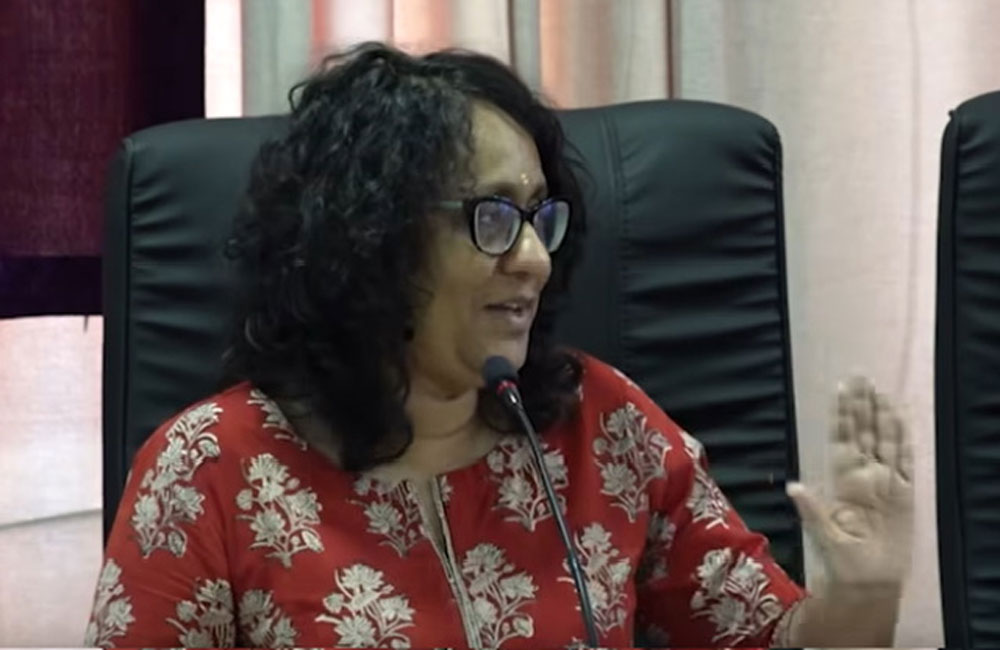
“No tolerance for violence or ragging in universities ”- PM
Prime Minister Dr. Harini Amarasuriya has emphasized that there will be zero tolerance for violence or ragging in universities. However, she assured that there will be no interference in student protests, struggles, or student politics.
She made these remarks during a discussion with the academic staff, administrative officers, and students of the University of Vavuniya, following the opening of the university’s newly constructed library building.
The Prime Minister further noted that many new university entrants lack the necessary foundational skills and qualities expected at the higher education level. As a result, universities are compelled to teach what should have been covered in school. She stressed that the shortcomings in school education are placing a significant burden on the country’s higher education system.
“We must ensure that every child leaving school is ready either for the workforce or for higher education. That’s something we must not forget. Through ongoing education reforms, we aim to address this gap,” she said.
She also reiterated the government’s stance on student activism: “We place no barriers on students raising their voices, protesting, or engaging in politics. But we will not allow any form of violence, ragging, or anything that harms the peaceful student community within universities. There will be no forgiveness for such acts.”
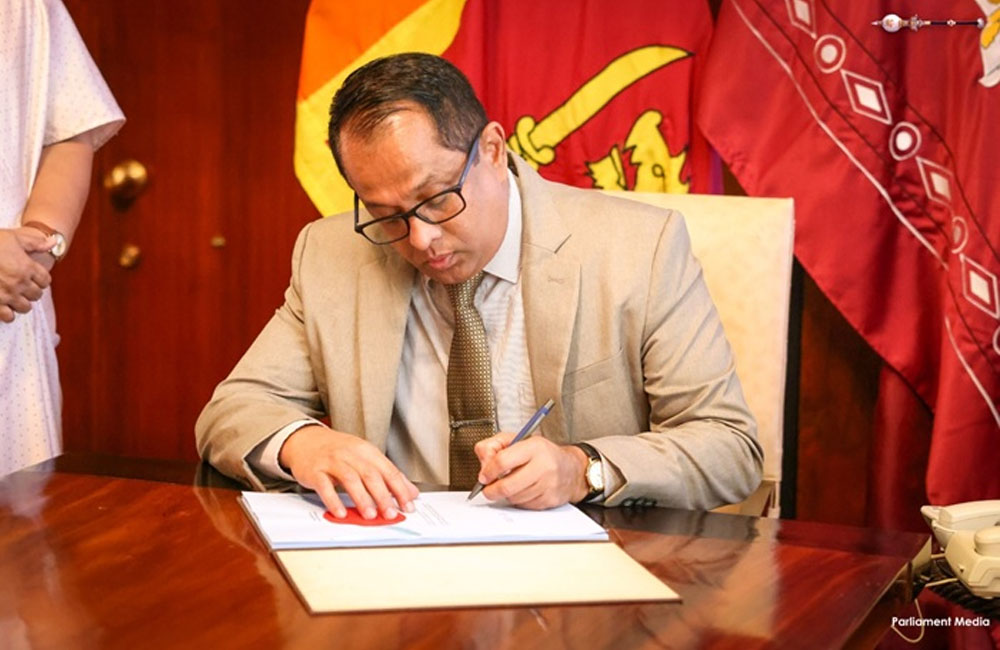
Speaker endorses certificate on Companies (Amendment) Bill
Speaker of House Dr. Jagath Wickramaratne has endorsed the certificate on the Companies (Amendment) Bill today (04), the Department of Communication of Parliament said.
The Companies (Amendment) Bill was passed in Parliament with amendments on July 23.
Accordingly, the amended Act introduces several provisions, including allowing the incorporation of a company with a single shareholder, extending the notice period for the public when changing a company’s name to 20 working days, prohibiting the issuance of bearer shares or bearer share warrants, requiring notification to the company regarding the issuance of bearer shares or bearer share warrants and mandating the disclosure of the bearer’s details to the company registrar within 60 days, requiring companies to divide shares within 20 days from the date of incorporation.
Further, the Act introduces new provisions related to “beneficial ownership of shares”, including disclosure of beneficial ownership information by secretaries and directors to the registrar, maintenance of records by the Registrar, making such information available to the public, mandating companies or the registrar to provide details of beneficial owners to government authorities, introducing new definitions for “beneficial ownership” and “effective control”.
Additionally, the amendments provide for empowering the registrar to extend the deadlines for companies to submit certain documents and information, allowing deregistered companies to re-register within a specified time and reclaim properties previously held by the government, expanding the scope of referring disputes to the Company Disputes Board for resolution.
This bill was presented for first reading in Parliament on June 5, 2025, by the Minister of Trade, Commerce, Food Security, and Cooperative Development.
Accordingly, the Companies (Amendment) Bill is now enacted as the Companies (Amendment) Act No. 12 of 2025.
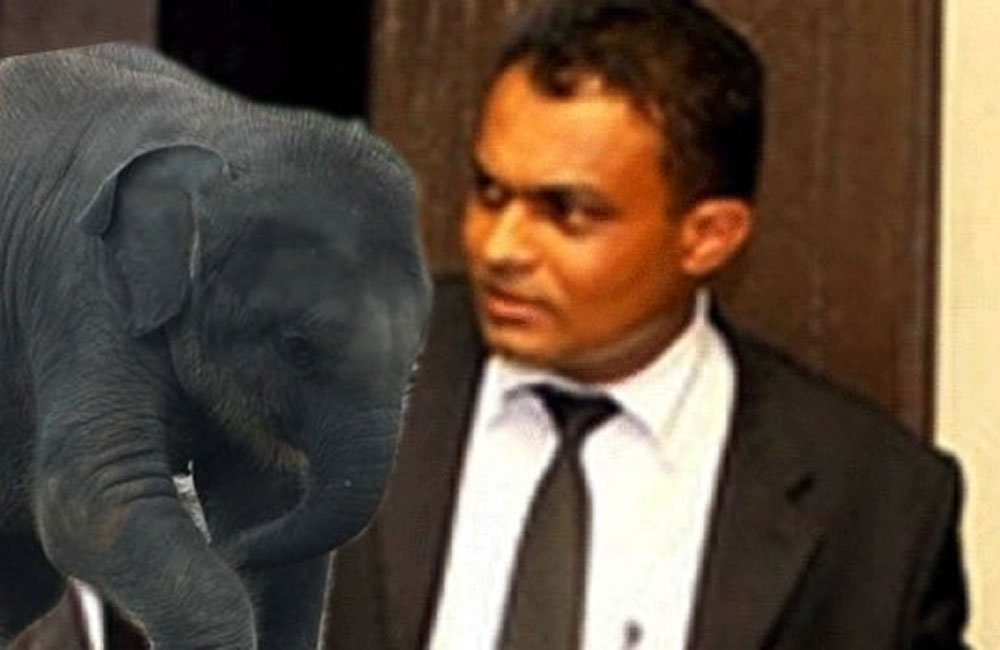
Duties of Magistrate Thilina Gamage suspended
The Judicial Service Commission has taken steps to suspend the duties of Thilina Gamage, who served as the District Judge and Magistrate of Moratuwa.
This suspension was carried out due to an ongoing investigation by the Judicial Service Commission concerning allegations of misconduct against him.
The Commission formally notified the Magistrate in writing yesterday (01 Aug), requesting a response within 21 days.
The investigation focuses on his involvement in an elephant trafficking incident. In June, the Judicial Service Commission filed a charge sheet against Thilina Gamage.
He was accused of committing an offence under the Public Property Act by possessing a baby elephant named “Sakura” using a fraudulently obtained permit. The Attorney General had filed a case against him under 25 indictments.
The Criminal Investigation Department had launched an investigation regarding the illegal possession of the baby elephant, and in May 2015, the elephant was handed back to the Department of Wildlife Conservation.
Subsequently, in May 2016, the Judicial Service Commission suspended Thilina Gamage’s duties while he was serving as the Additional Magistrate of Colombo.
On November 7, 2019, indictments were filed before Colombo High Court Judge Gihan Kulatunga against Thilina Gamage, Chandraratna Bandara Yatawara, and two others.
However, on December 16, 2021, the Attorney General’s Department dropped the charges against Thilina Gamage due to insufficient evidence.
Page 103 of 656